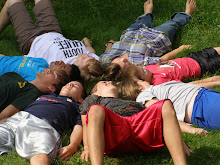
ZENIT interviews Archbishop Terrence Prendergast:
...Q: There is currently a federal election in Canada. What are some of the issues and concerns faced by Catholic voters in the country?
Archbishop Prendergast: The Canadian Conference of Catholic Bishops proposed a short study guide for Catholics, urging them to get involved in the political process -- expressing gratitude to those who present themselves as candidates -- and giving four main points for those serious about bringing their faith to bear in addressing important issues at election time.
They consist chiefly in: 1) the right to life placed as the foundational principle grounding all others. For example, by opposing those who favor abortion, and by asking candidates whether they would vote in favor of euthanasia if a bill were introduced in Parliament; 2) giving priority to care for the poor and needy as a mark of respect for the dignity of each person from the moment of conception until natural death; 3) seeking clarity about the purpose of the war in Afghanistan; 4) and care for the environment as an aspect of the stewardship of creation.
Except for the introduction of the environment as an issue in the federal electoral campaign on account of the growing popularity of the Green Party, few of the themes enunciated by the bishops have been prominent in pre-election debate. In fact, there seems to be a conspiracy of silence in regard to the abortion question, all parties being either pro-abortion or unwilling to let the matter come up for discussion. This is most frustrating for those who espouse the cause of life.
Q: Catholics often feel homeless within the political process. One political party supports Church teaching on life and family, but not on social justice. Whereas with another political party the situation is reversed. How do Catholics reconcile these differences in the voting booth?
Archbishop Prendergast: Many Canadians seem to prefer a minority Parliament in which cooperation has to be fostered to bring about the common good. In that light, the values and principles of the individual Member of Parliament -- from whichever party -- should perhaps be given greater weight than the party he or she represents.
Electing even a small minority in the House of Commons with sound ethical considerations will open the door to the possibility of affirming life, for example, through introducing legislation to reduce and eventually proscribe abortion, or in preventing legislation to introduce euthanasia as a beginning. The steadfastness in witnessing to life will, I believe, ultimately prevail because it is of God.
Q: Over the past year, much attention has been drawn to Canada 's human rights commissions and tribunals, especially in light of Canada 's recognition of same-sex marriage. Several activists have launched complaints against Christians who advocate returning to the traditional definition of marriage. Have the human rights commissions and religious freedom been a topic during the election?
Archbishop Prendergast: The human rights commissions and tribunals have been a background issue, which, unfortunately, goes largely unnoticed due to the lack of interest by most of the mainstream media -- MSM. The MSM in effect sets the tone of what gets discussed; I discovered this last May when last year’s largest demonstration on Parliament Hill -- the March for Life -- received not a single mention in the MSM. Morning news reports urged people to avoid streets around the Peace Tower that afternoon because of a demonstration, without mentioning what the demonstration was about. A procession of 150 Falun Gong demonstrators merits front-page coverage; an 8,000-strong “March for Life” becomes a nonevent. We have much work to do to make the truth known.
Q: What are some issues that you, as pastor to the nation's capital, would like to see discussed this election?
Archbishop Prendergast: Besides the items mentioned above, I believe we need to bring the concerns of the marginal of society to the fore: particularly the state of poverty among our First Nations Peoples.
Q: What can lay Catholics do to ensure that the Catholic voice is heard during the election?
Archbishop Prendergast: Politicians tell me that the most important influence in their representation of the concerns of the electorate is what they hear when canvassing on people’s doorsteps. Clearly they are not hearing enough about concerns that our faith considers urgent. We need to become courageous in making known our concerns about life, the family and marriage to those campaigning for public office.
...............................................................................
NOT available on the MSM.
.






















No comments:
Post a Comment